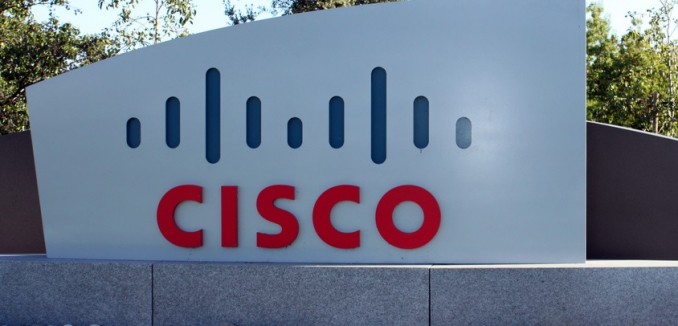Cisco Systems has acquired an Israeli-founded cloud security firm a day after announcing a strategic cooperation agreement with Israel’s largest bank.
Cisco will acquire CloudLock, which was established in 2011 by three IDF veterans, for $293 million, Globes reported Tuesday. The company has 150 employees, 30 of them in Israel, and has raised $39 million thus far.
On Monday, Cisco and Bank Hapoalim signed a financial technology agreement “designed to speed up the digital revolution in Israel,” Globes reported. “I am happy to cooperate with Bank Hapoalim on the future of the banking industry. The Memorandum of Understanding that we are signing today is the first step towards change in this sector in Israel,” said John Chambers, CEO of the U.S.-based networking giant.
The world’s largest networking technology company, Cisco has had several high-profile dealings with Israeli firms. Cisco “invested $15 million in Israeli storage software start-up Elastifile,” Reuters reported two weeks ago, and the giant bought the Israeli company Leaba Semiconductor for $320 million back in March.
At a San Francisco forum in April, Chambers said he was optimistic about Israel’s position as a start-up hub, but emphasized that it needs to invest in strong STEM education and forward-thinking policy. “When I talk about Israel, I’m talking about one of my favorite countries in the world,” he added.
In The Sabras of Silicon Valley, which was published in the October 2014 issue of The Tower Magazine, Miriam Pollock explained that the acquisition of an Israeli company by an American one actually strengthens Israel’s tech sector.
When a startup is “moved” to Silicon Valley, moreover, it rarely moves in its entirety. Usually, only the headquarters is transferred. Once in California, sales, marketing, and management employees interact with venture capitalists, journalists, and other businesspeople in order to get the company noticed. But the “guts” of the organization—research and development (R&D)—stays in Israel.
An R&D branch improves on existing products and develops new technologies. It keeps a company relevant. And R&D tends to stay in Israel because R&D there is exceptionally strong. The number of multinational tech companies with R&D centers in Israel attests to this. Among them are Intel, Google, GM, Microsoft, IBM, Facebook, Cisco Systems, Sears, Oracle, and Apple. In Israel, they can recruit young men and women fresh out of the Israel Defense Force’s elite intelligence and computer science units. These talented engineers have received an education on par with that provided by MIT or Stanford.
[Photo: Prayitno / Flickr ]




